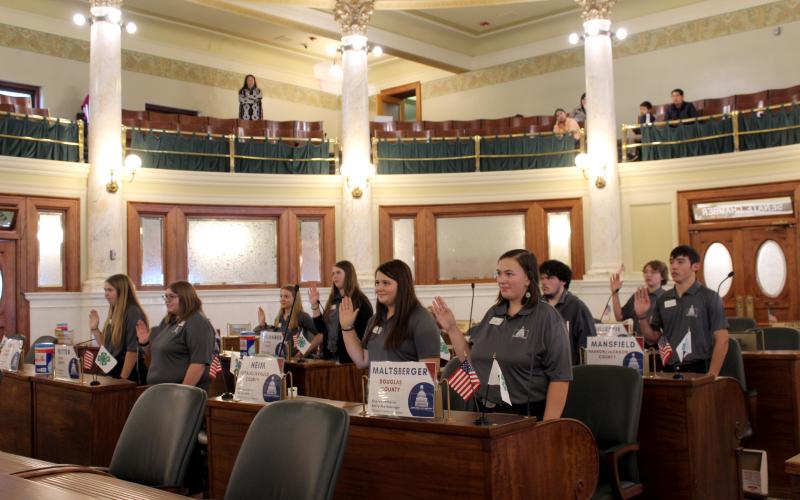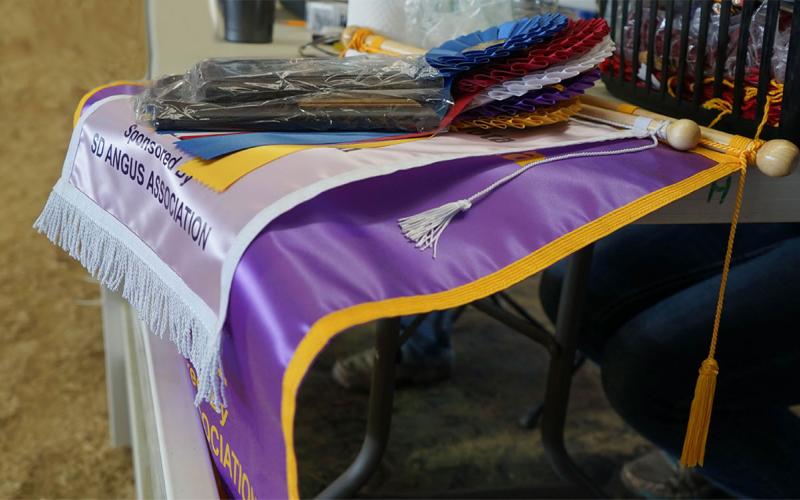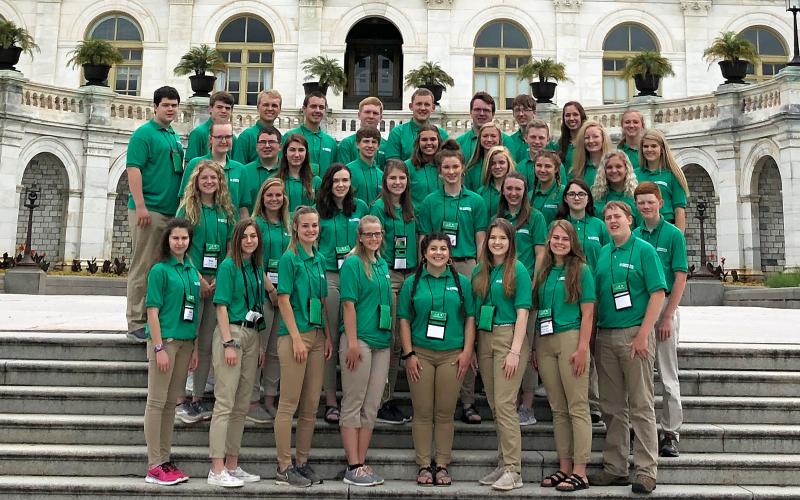South Dakota 4-H will consider the needs of participants with special needs and/or disabilities in its program. All 4-H programs will comply with current standards under the Americans with Disabilities Act (1990) and subsequent provisions.
Special need accommodations are available to youth ages 5-18 who are enrolled members of the South Dakota 4-H program. Individuals older than 18 years of age who have special needs are eligible to participate in 4-H, provided they are still enrolled in high school (or equivalent) special education programs and have not exhausted the 14-year participation maximum.
Individuals needing special assistance should contact their local 4-H office by the deadline date or at least two weeks prior to the activity/program. Every effort will be made, without causing undue financial and administrative burdens, to provide reasonable accommodation for the participation of individuals with disabilities.
Physical and emotional safety should always be addressed in context with the individual member’s ability to participate in said activity. The assessment of reasonable accommodations should include the youth, the youth’s guardian(s), the leader of the activity, and the appropriate 4-H professional (usually the local 4-H Educator).
Special safety accommodations may need to be made in advance of situations dealing with certain 4-H project areas, such as animals and shooting sports. Accommodations may include considerations of rules and or policies, equipment modification, space needs, architectural barriers, or other unique circumstances.
Any accommodation for youth with disabilities shall:
- Allow the child to participate in activities with their peers.
- Observation of the activity without direct involvement does not constitute participation.
- Not adversely affect how other participants in the activity perform or are evaluated. Every effort should be made to minimize the effects of the accommodation on other participants.
- Be assessed on a case-by-case basis. The assessment of accommodations should include youth, the youth’s guardian(s), the leader of the activity, and the appropriate 4-H professional (usually the local 4-H Educator).
- In some cases, consultation with a vocational rehabilitation professional or a teaching professional is recommended to determine appropriate and reasonable accommodation.
- Be reasonable. Accommodations are considered reasonable if they do not change the fundamental nature of the program or alter the essential criteria for participation.
- Participants with disabilities will be judged by similar criteria to other participants.
Examples of common accommodations include:
- Modifying rules, equipment, or timing of events
- Eliminating architectural barriers or providing additional space
- Providing an interpreter, reader, or modified testing
- Allowing the use of technology (e.g., letter boards, computer)
It is important to respect the privacy of the individual 4-H participant. Information regarding the personal situation or disability is confidential, even in a 4-H protest or grievance proceeding. Any information gathered to assist the child with full participation must be used for that purpose only.


